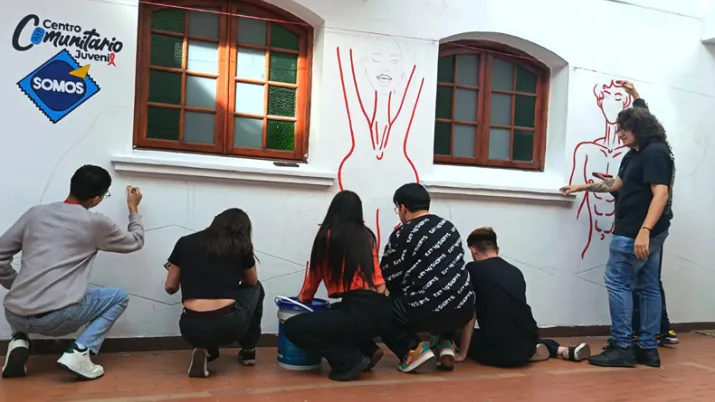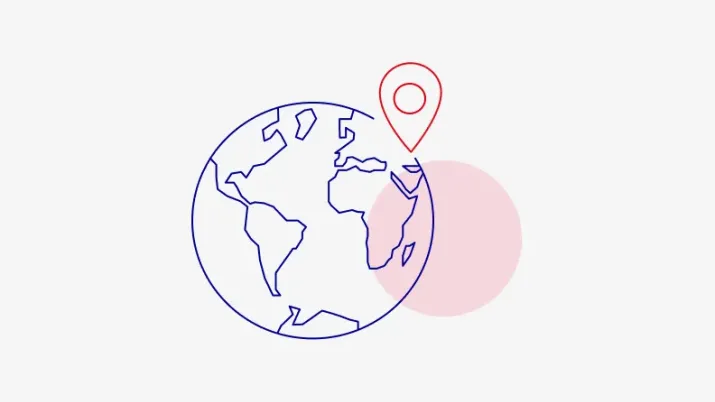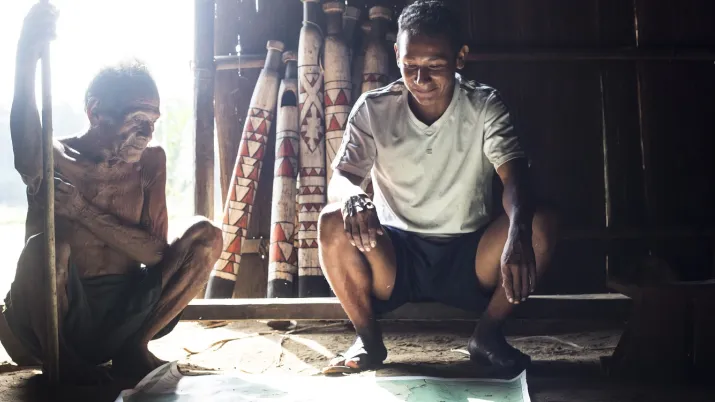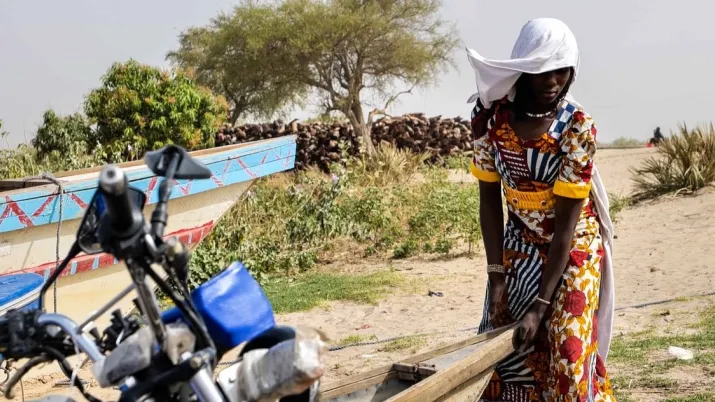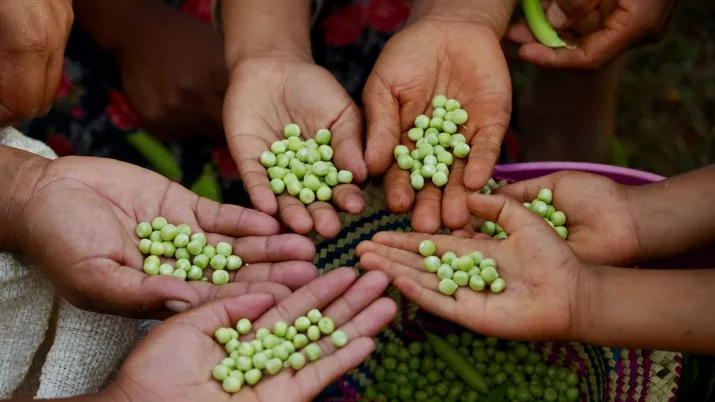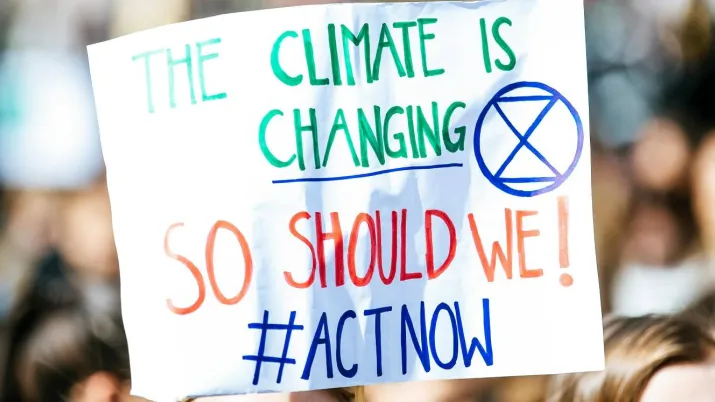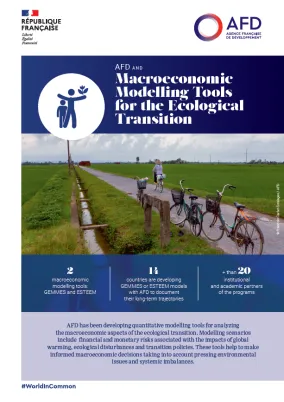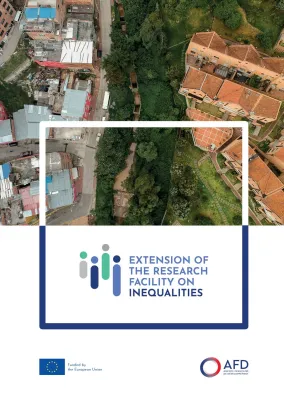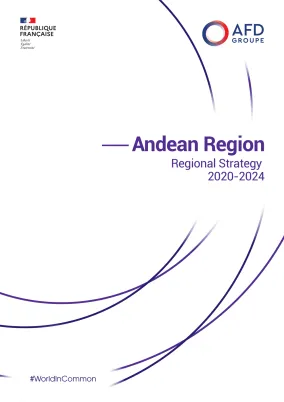Share the page
Colombia

Since 2009, AFD Group (Agence Française de Développement, Proparco, and Expertise France) has become one of Colombia’s leading international development banks, with a recognized presence in several key areas. These include support for the ecological transition, the development of sustainable cities, and the reduction of inequalities, particularly gender inequalities.
Context
Colombia is a country defined by its diversity, both in terms of natural heritage and social realities. In the coming years, the country faces the challenge of reducing social inequalities and promoting the equitable development of its regions. Taking climate change into account in public policy is also a prerequisite for Colombia’s accession to the OECD. The country is pursuing an ambitious policy agenda to combat climate change and protect biodiversity, with goals of achieving carbon neutrality by 2050 and zero deforestation by 2030.
With more than €4.3 billion committed since entering the country in 2009, France is one of Colombia’s main bilateral donors. AFD Group operates not only through sovereign loans to support major national reforms, but also directly with local authorities, companies, and financial institutions. Its financing tools, including grants, allow it to support technical cooperation and address key priorities, particularly biodiversity protection.
In 2016, the French and Colombian presidents signed a roadmap guiding AFD’s work in the country over the coming years. It outlines two main priorities:
- support for the implementation of the peace agreements
- complementarity between investment financing and support for government policy
AFD's Colombia office is directly attached to the Andes regional office.
Our approach
AFD and Colombia fighting inequality and climate change
Since the adoption of the Paris Agreement in 2016, AFD has been supporting Colombia in implementing major climate and environmental reforms. Several sovereign loans totaling €870 million have been signed for this purpose. In parallel, numerous technical cooperation programs have contributed to the development of Colombia’s carbon neutrality strategy for 2050, whose targets are now enshrined in the Climate Action Law adopted in 2021. AFD has also worked with several Colombian universities to develop research programs aimed at assessing the long-term economic and financial impacts of the energy transition. Lastly, it supports the implementation of these reforms on the ground by working with cities and public enterprises as they move toward low-carbon development pathways.
AFD gives priority to preserving strategic ecosystems, in line with the French presidential initiative for the Alliance for the Preservation of Tropical and Rainforests. Its work focuses in particular on the Amazon basin (Terramaz project – €9.5 million, TerrIndigena project – €12 million) and the páramo regions (Macizo Colombiano project – €3.6 million). These actions aim to strengthen the capacities of authorities and communities in land-use planning, forest cover monitoring, and the development of sustainable agricultural practices.
AFD Group is a recognized partner in Colombia, supporting cities in their transition toward more inclusive and low-carbon urban models. It is particularly active in the areas of electric mobility, biodiversity conservation, and social inclusion.
AFD financed the first tram line in Medellín and two cable car lines with a €250 million loan. Since 2020, it has supported the urban transformation of Barranquilla, Latin America’s first “biodiverCity”, through several flagship projects, including the restoration of the Mallorquín Lagoon.
AFD is also supporting Bogotá in the design of its strategic urban projects, such as the redevelopment of Avenida Séptima into a green corridor and the installation of a new cable car in the northern part of Ciudad Bolívar.
Finally, through its private sector arm Proparco, AFD helped finance the city’s first major electric bus concessions (Electribus and Green Movil).
Since its establishment in Colombia, AFD has aimed to combat social inequality in all its forms. Particular attention is given to reducing gender inequality, which is systematically analyzed across all operations. AFD supported an initial reform of the social protection system in 2013 and renewed its technical cooperation with the Ministry of Health on primary care and access to medicines. It is also involved in migration-related issues, particularly access to healthcare for women and children, as well as financial inclusion.
Since the signing of the peace agreements, AFD has significantly scaled up its support mechanisms for civil society. Its current project portfolio includes around 15 initiatives, mainly focused on sustainable agriculture, ecosystem preservation, and the protection of human rights. Thanks to their field presence, in-depth understanding of the national context, and strong reputation, civil society organizations are key partners in advancing AFD’s strategic priorities in Colombia.
In the field
Projects
News & Press Releases
Publications & Media
Key figures
-
€3 billion committed since 2009 since 2009
-
25 project under implementation
-
€60 million in grants committed

